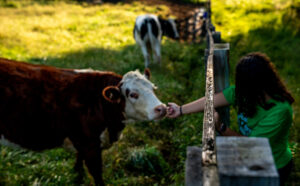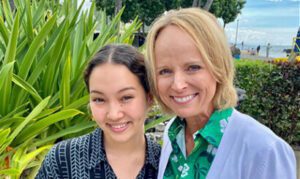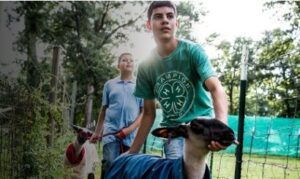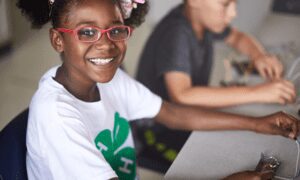For Sofia, a Juntos 4-H’er and senior at Moreno Valley High School in California, it was not hard to notice how her school stood out for all the wrong reasons. “Every city has its sketchy areas, and my school… it is not high class like the other high schools.” She explained. If you step foot into another high school, it is a completely different sensation.” She shared.
Many of the neighborhoods that funnel into her school are less affluent than their surrounding areas. With almost seventeen percent of the population in the area living below the federal poverty line(Data USA), it is challenging for her school to provide the same resources to students as other schools in the area.“They [the other high schools] have a program that focuses on students and connects them with doctors and patients, and we are the only high school in the district that is not offered that program,” she explained. “It makes it seem as if we don’t get those opportunities because we probably won’t even make it to be a doctor.”
Sofia saw the lack of funding and limited program selections at her school that was directly affecting the perception of Latino students on their abilities to pursue higher education. To help Latino students gain more confidence in their educational potential, Sofia looked for a place where she could allow her community members to be heard. After Juntos 4-H was launched at her school, Sofia realized that she could use the program as an outlet to become more in touch with her community and it provided clarity about the power of her youth voice.
Sofia remembers how much her self-confidence increased and her connection with her community drastically improved after visiting UC Merced’s campus with her fellow Juntos 4-H members. “It allowed me to understand that I am worth value and anything is possible, even being Latino and part of the minority group,” she said. “I feel like just listening to everybody’s stories and how people suffer through immigration problems connected me more with the people of my own demographic.” This new bond with her community sparked a desire in Sofia to help her community address some of the issues regarding unequal educational opportunities she witnessed, especially knowing that she had the proper support from her Juntos family.
Sofia became president of Juntos 4-H at her school and used her leadership position to increase Latino advocacy in her district. She saw that doing so not only supported a positive impact in her school district, but also gave a newfound sense of confidence to other Juntos 4‑H members. Recently, Sofia and her fellow Juntos 4-H members spoke at to the Board of Supervisors at her City Hall about the importance of funding for the schools and programs in their community.
“Money was the issue, but the interest of the kids who want to continue these things and who want to see growth within themselves is priceless,” she said. For Sofia, bringing her peers and community together to advocate for themselves was empowering and something she sees as very valuable to the Latino community. She wants to continue to foster this in younger kids at her school.
Though the Juntos 4-H program was launched at her school under the original intent of encouraging Latino students to pursue a higher education after high school, Sofia believes that the program stems into a much larger context of uniting the Latino community and making them feel heard. “Juntos 4-H provides a home and a place in which you can safely feel like it is your community,” she explained. “It is so necessary for people to find somewhere to belong and to find somewhere to get their questions answered by a mentor.”
Sofia hopes to utilize her senior year as president of Juntos 4-H to expand its positive impact on her community to as many people as possible. She is making it a priority to make every one of the 76 percent Hispanic student population at her school feel safe and never feel deterred from pursuing their desires.
“For the upcoming year, I want to involve all the other students and makes sure that they know they have a safe place to communicate and are not scared of achieving new things,” she said. “I hope expanding the program gives more students, not only myself, an identity as to what the community is like and that there are actually people that care for them and that they have someone to relate to and trust.”
















